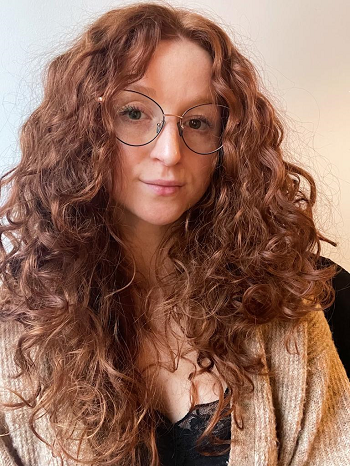Ramona D’Alfonso M.A.

Ancient Languages and Texts (ALT)
Ägyptologie
Fachbereich Geschichts- und Kulturwissenschaften
Ägyptologisches Seminar
Fabeckstr. 23/25
14195 Berlin
07/2021 – today
PhD Candidate – Freie Universität Berlin
10/2022 – 02/2023
Zooarchaeologie Workshop, Freie Universität Berlin
07/2021 – 08/2021
Archaeological excavation in Atella, Potenza
09/2017 – 10/2020
Master in Oriental Studies: Egypt, Middle and Near East – Università di Pisa
01/2020 – 03/2020
Erasmus+ Project, thesis abroad – Freie Universität Berlin
07/2019 – 08/2019
Internship Egyptian Museum, Turin
09/2013 – 01/2017
Bachelor in Archaeology, Università la Sapienza, Rome
03/2015 – 05/2016
Internships Museum of Asia, Egxpt and the Mediterranean, Rome
08/2015 – 09/2015
Archaeological excavation in Mozia, Trapani
09/2014 – 10/2014
Archaeological excavation in Saturno, Taranto
The one who knows the animals: knowledge, application and transmission
Animals strongly influenced Egypt's imagery. From religion to art, they played a fundamental role, as in all ancient societies. As a result of domestication and the growing economic importance, taking care of animals became humans' accountability.
A highly organised society such as the Egyptians entrusted the care of these creatures to specific individuals. Previous studies have shed light on these figures, such as the shepherd, the beekeeper or the stableman—personalities with social importance and detailed cultural knowledge.
Titles such as ‘true overseer of the two fowling ponds of recreation’ (imy-rA zSwy mA’ n sxmx-ib) – appearing as early as the Old Kingdom reliefs – highlight a yet unexplored field. Thus, the present project aims to extend the existing approach to the overlooked category of fish and birds. A broader scenario related to the organisation of recreational places in the royal palace may be uncovered. A cross-referenced study of texts, biographies and iconography will unveil these figures, understanding tasks, societal position and knowledge owned.
